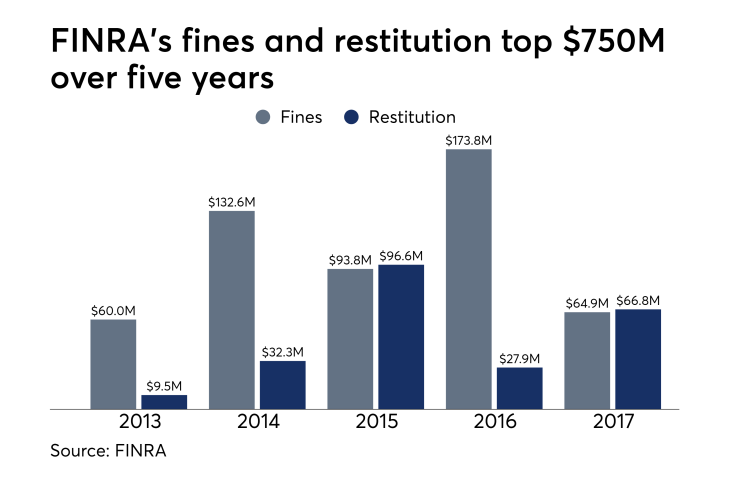AUSTIN, Texas — In only the second year of its reform efforts, FINRA is making progress in its examinations overhaul and better engaging with the industry, according to the chief regulatory affairs officer at Commonwealth Financial Network.
“We had an exam in 2018, and it actually began and ended in 2018,” Rob Molinari, the firm’s lead contact with FINRA for exams since 2006, said on a panel at the firm’s annual conference. Changing exams to be more frequent but more limited in scope is making the process shorter than in the past, Molinari says.
“We’d have examples,” he added, “where they would give us our final exam report, our disposition letter, and a week later they’d have the introduction letter of, ‘hey we’re coming in to see you guys again.’”

Commonwealth, which is the
Molinari and Paul Tolley, the firm’s chief compliance officer, joke that Molinari acts as the firm’s “good cop” with regulators while Tolley is the bad cop. He assured the audience of some 100 Commonwealth advisors that he’s “not subtle” when he takes issue with regulators’ approach.
In that vein, Commonwealth prompted FINRA to draft a proposal allowing for advisors to use e-signatures instead of the manual ones currently required in discretionary account agreements, he says. He noticed a difference under CEO Robert Cook when they met for the first time at a FINRA membership committee meeting, Tolley says.
“He came in and met with us, and he asked all the other FINRA folks to leave the room. He wanted to talk with the industry folks, and he wanted our opinions about anything and everything about what we thought was going on,” Tolley said.
“Having that type of engagement,” he continued, “that type of one-on-one engagement with, not only the CEO, but the head of enforcement and the head of member regulation and all these folks is incredibly important — and it builds relationships.”
-
Bari Havlik says she needs to know when examiners’ rulings appear out of step with the actual guidelines.
September 25 -
Robert Cook detailed his multi-year overhaul aimed at easing compliance, revisiting old rules and rooting out bad actors.
May 17 -
The regulator will save members tens of millions of dollars by helping them verify advisors’ Form U4 financial disclosures, Robert Cook says.
May 22
FINRA released internal data in the regulator’s first-ever such report, highlighting changes in the wealth management space.
Cook launched the self-regulatory organization’s so-called FINRA360 review and reform program in 2017, vowing the take a listening tour across the 3,700 BDs and 629,000 representatives under its supervision.
The changes made by FINRA since then include making
“These aren’t necessarily flashy or even easy for those who are not in the industry to understand or appreciate, but we think they are very meaningful for many of you in this room, and they respond to your feedback,” Cook
He acknowledged in the speech that the regulator had much more work to do on the exam program, which spans more than 7,800 exams conducted by FINRA in 2017. Commonwealth now receives exams annually instead of every other year, with a focus on FINRA's published exam priorities, Molinari says.
In the past, examiners would run down a lengthy checklist of written supervisory procedures with firms whether they applied to the firm in question or not, according to Molinari. The smaller scope also leads to discussing the more relevant matters in greater depth for possible tweaks in the future, he says.
“I like this method better,” Molinari says. “I appreciate them taking this approach of limiting the scope and prioritizing the risks, rather than having them come in every other year and doing a full exam where you’re spending too much time on things that don’t even matter.”
The potential change allowing for e-signatures rather than dated and manual signatures for all managed accounts would be “monumental for everyone in this room,” according to Tolley. FINRA has submitted a draft of the new rule to the SEC for feedback ahead of formally proposing it, he says.
Representatives for the SEC didn’t respond to requests for comment, while a spokeswoman for FINRA had no comment. Regardless, Tolley says the increasing lines of communication between the firm and regulators at all levels is helping Commonwealth.
“We will make mistakes, but it’s how you react to that, it’s how you address it that really matters,” Tolley said. “They know we’re good citizens, they know what type of firm we are, what our advisors are like. And we get a lot of benefit from that type of engagement, that type of relationship.”






